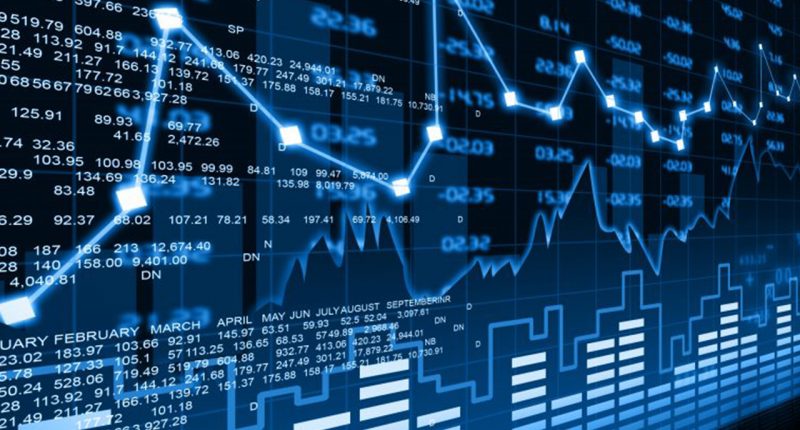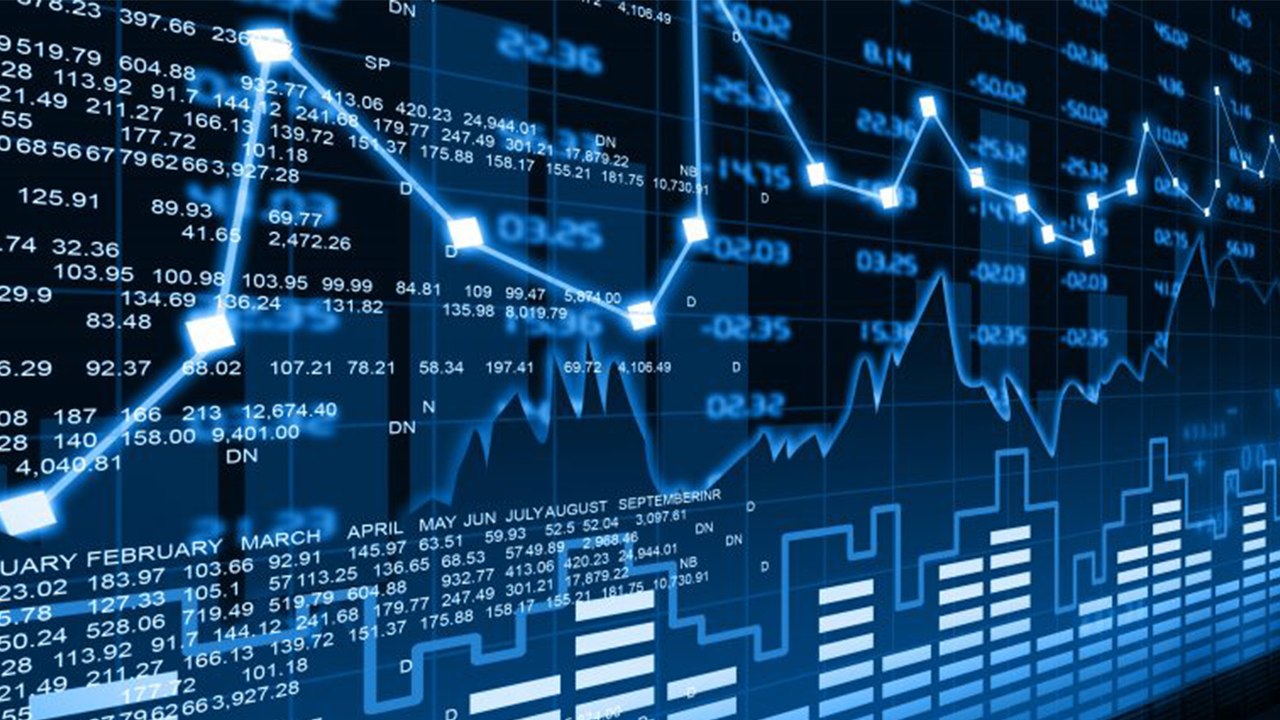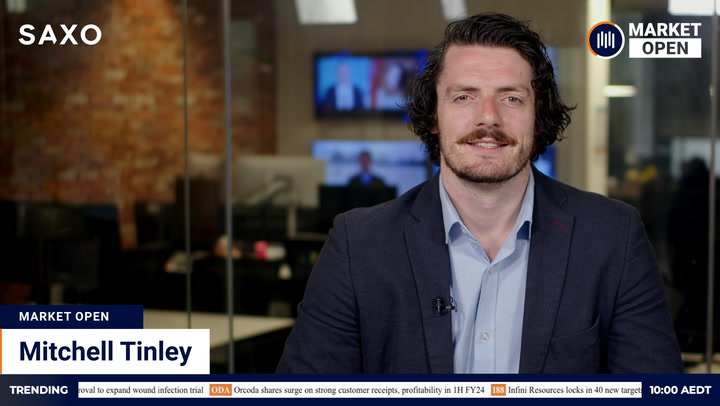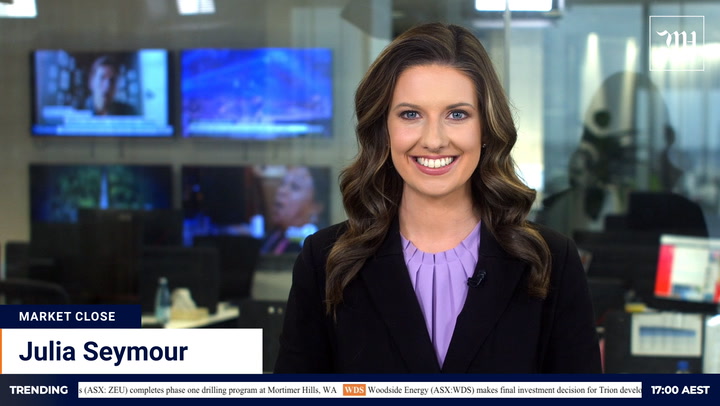The ASX was set to open sharply lower after the threat of renewed Covid shutdowns and a global economic slowdown triggered heavy falls in the US.
The Dow plunged more than 2 per cent to its largest loss in almost nine months. The S&P 500 and Nasdaq suffered their biggest hits since mid-May. Oil tumbled nearly 7 per cent.
ASX futures declined 68 points or 0.94 per cent.
Wall Street
Travel and tourism stocks and other sectors linked to economic growth slumped as the surge of the delta coronavirus variant rattled markets. Europe’s major benchmarks all lost at least 2 per cent
The Dow Jones Industrial Average dropped as much as 946 points before trimming its loss to 726 points or 2.09 per cent. The S&P 500 shed 69 points or 1.59 per cent.
The Nasdaq Composite lost 152 points or 1.06 per cent during a fifth straight fall. The index’s losing run is its longest since October.
“Much of it is related to the Delta (variant),” Paul Nolte, portfolio manager at Kingsview Asset Management, told Reuters. “There’s some concern too that maybe the economy is not going to open up as quickly as everyone thinks, and the big boom that everyone’s expecting is going to be more of a pop than a boom.”
Covid has resurged in the US over the last month as the more contagious delta variant spread. New cases averaged 26,000 last week, more than double the seven-day daily average of 11,000 cases a month ago.
Wall Street’s “fear gauge”, the CBOE Volatility Index, jumped more than 20 per cent to its highest level in two months. The Russell 2000 index of small caps – used by some investors as a barometer of risk appetite – briefly entered a technical correction before trimming its loss to 1.51 per cent.
Stocks linked to global growth declined. Boeing dived 4.94 per cent, Caterpillar 1.82 per cent, Ford 2.42 per cent and General Motors 2.42 per cent.
The energy sector dived 3.6 per cent as crude endured its heaviest decline since September. Brent crude settled $4.97 or 6.8 per cent lower at US$68.62 a barrel after OPEC+ reached a deal to increase production. The US benchmark fell 7.5 per cent.
The S&P 1500 airlines index dropped 3.79 per cent. Cruise lines Carnival and Norwegian both lost at least 5.5 per cent.
Bond yields tanked almost ten basis points to below 1.2 per cent for the first time since mid-February. One interpretation of falling yields is that the growth expectations priced into equities for next year are too high.
“The market appears ready to take on a more defensive character as we experience a meaningful deceleration in earnings and economic growth,” Morgan Stanley Chief US Equity Strategist Mike Wilson told clients. “Market breadth has been deteriorating for months and is just another confirmation of the mid-cycle transition, in our view. It usually ends with a material (10-20%) index level correction.”
Australian outlook
Assume defensive positions. Wall Street is finally waking up what Australians have known for some weeks: the delta variant threatens corporate earnings through lockdowns and slower growth.
The ASX has largely marked time during the NSW and Victoria lockdowns, thanks to record prices in the US. That support suddenly looks fragile. The S&P/ASX 200 pre-empted some of the overnight weakness, falling 62 points or 0.85 per cent yesterday, but will have to give more today to fall back into alignment with the US.
US action offered few obvious havens. Cyclical sectors bore the brunt. Energy fell 3.59 per cent, materials 2.18 per cent and industrials 2.14 per cent. Yield-sensitive financials lost 2.8 per cent.
Bond proxies fared slightly better, but the sinking tide lowered all boats. Consumer staples was the best of a rotten bunch with a loss of 0.31 per cent.
The minutes from this month’s RBA policy meeting are due at 11.30 am AEST, but seem unlikely to change the narrative for the session unless they contain a genuine surprise.
The IPO pipeline will dry up if this global retreat accelerates. Western Mines has the misfortune to list amidst today’s bloodletting at 1.30 pm. The company explores for gold and nickel sulphide in WA.
The dollar slumped 0.61 per cent to 73.43 US cents as forex traders sought the security of the US dollar.
Commodities
Industrial metals were crushed by the rising greenback and growth concerns. Benchmark copper on the London Metal Exchange dropped 2.2 per cent to US$9,188.50 a tonne. Aluminium fell 2.5 per cent, nickel 3.2 per cent, lead 1.3 per cent, zinc 0.9 per cent and tin 0.8 per cent.
BHP’s US-listed stock fell 2.74 per cent and its UK-listed stock lost 3.2 per cent. Rio Tinto gave up 3.09 per cent in the US and 2.97 per cent in the UK. The spot price for iron ore landed in China eased US$1.05 or 0.5 per cent to US$220.05 a tonne.
Gold dropped for a second night as the rising US dollar dampened interest from holders of other currencies. Metal for August delivery settled US$5.80 or 0.3 per cent lower at US$1,809.20 an ounce. The NYSE Arca Gold Bugs Index fell 2.14 per cent.







